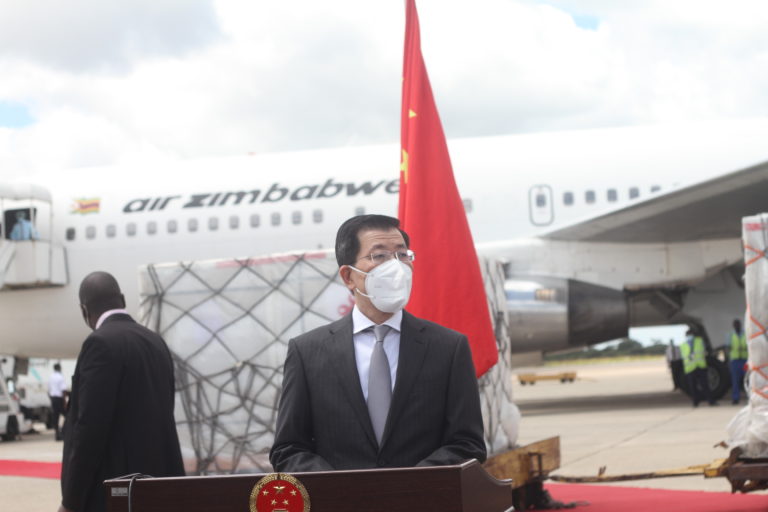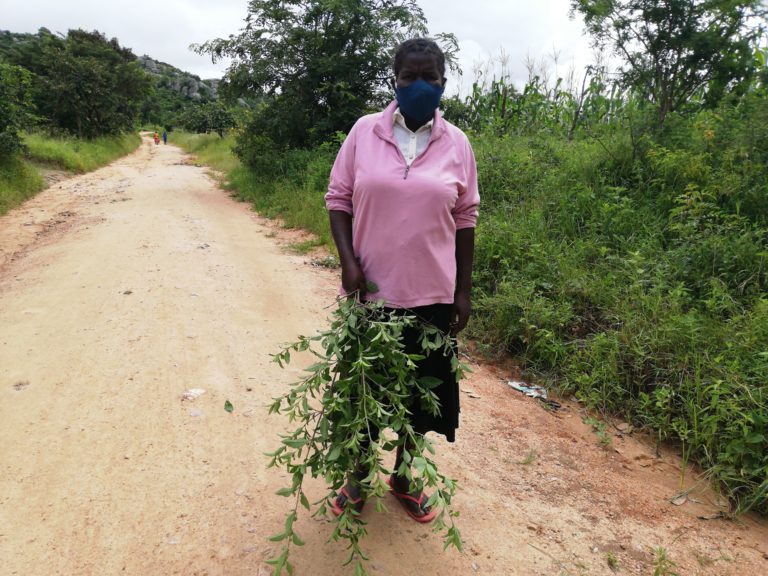The receipt of Coronavirus vaccine donations by African countries from China increasingly expands the Asian giant’s Road and Belt Initiative (RBI) in the continent at a time the world is in turmoil. As the Coronavirus pandemic shows no signs of slowing, China’s influence is growing more scientific, sophisticated, and technological. With China’s influence in Africa growing, the dangling of the Coronavirus vaccine has reconstructed the sovereignty of African states that no longer demand transfer of scientific technology but giving in to advances from China.
China’s RBI concept, also known as One Road, is an idea it uses to strengthen its connectivity with the world and expand its geographic influence in Europe, Asia, and Africa through increased cultural ties. Zimbabwe has already received two consignments of a total 400,000 vaccines from China. Equatorial Guinea and Senegal were also among the first countries to administer China’s Sinopharm or Verocell vaccine, and the list continues to grow.
“The fact that we are the only country in Africa that has to date received the second batch of the vaccine doses from China, attests to the strong, comprehensive and strategic nature of our partnership,” said Zimbabwe’s President Emmerson Mnangangwa last Tuesday while receiving the second batch of 200,000 Sinopharm vaccines. Besides the donations, Zimbabwe has also purchased 200,000 vaccines from China’s Sinopharm.
China’s ambassador to Zimbabwe Guo Shaochun confirmed that in his country’s 14th five-year development plan, technological innovation is the torchbearer of his country’s global cooperation while dismissing the term “vaccine diplomacy” as a term by the West to discredit China.
“Western politicians and media discredit China’s vaccine assistance as “vaccine diplomacy”. Such a term shows their poor morality and intelligence or sour grapes. China’s aid has never been attached political strings. This is the most essential difference between China and the West in their aid to Africa because both China and Africa believe in national independence and liberty; both believe in sovereignty, equality, and fairness; both believe in solidarity and mutual support,” he said.

But Africa’s lack of thorough investments in scientific knowledge in the medical sector continues to reveal the continent’s shortsightedness and expose the strengths of China’s RBI, which is becoming farsighted and strategic in the post-pandemic cooperation.
Last March Madagascar became the first African country to produce a herbal tonic, COVID Organics, as a preventive and curing method to combat Coronavirus. The World Health Organisation (WHO) recommended that the tonic be clinically trialed. In another development, Tanzania last year stopped publicizing its COVID-19 cases as President John Magufuli, who was announced dead on March 17, declared his country was Coronavirus-free “thanks to God.”
The Coronavirus vaccine donations have given China power to becoming a kingmaker for new political alliances at the expense of Africa’s inability to develop and lead in science. The donations further create an imbalance that has overlooked Africa’s potential in fighting the Coronavirus using locally developed and scientifically certified vaccines. While Chinese vaccine donations continue to come, their formulas are patented in their countries, rendering Africa’s investments in scientific research weak.
On March 12, an inaugural quadrilateral summit by the United States of America (USA), India, Australia, and Japan pledged to checkmate China’s growing global influence and also in the way it is fighting Coronavirus. Africa has not been refuting advances by China, but embracing it as a way to salvation and redemption from the Coronavirus pandemic. In 2013 and 2014 the USA and China established partnerships to help Africa fight Ebola in Guinea, the Democratic Republic of Congo (DRC), and Liberia. Today, the cooperation no longer exist as China continues to buy alliances in Africa through the vaccines.
In the case of Zimbabwe, besides receiving vaccines from China, in January the country also received a donation of twenty ventilators from the USA. In a statement, the embassy said “the ventilators, produced in the United States, reflect cutting-edge technology customized to Zimbabwe’s needs and requirements.”
These donations are not simply acts of kindness, but a lack of preparedness on the continental leaders in responding scientifically and technologically to Africa’s problems. The Coronavirus pandemic has exposed Africa and Zimbabwe’s slow pace in stimulating and up-scaling scientific investment and research.

Zimbabwe’s Acting Foreign Affairs minister, who is also the minister of Higher and Tertiary Education, Science and Technology Development, Professor Amon Murwirwa says the much spoken “vaccine diplomacy phenomenon is a conspiracy theory” that is “problematic” in understanding China’s relationship with Zimbabwe.
Between Zimbabwe and China, there currently is no “active program going on” in terms of scientific research exchange.
“China and Zimbabwe are strategic partners. In terms of scientific research between the two, it is not transferred but exchanged. I am not saying there is an active program (on scientific exchange) going on, but there is active cooperation.
“After the COVID-19 pandemic, Zimbabwe is going to emerge from this crisis with improved capabilities,” said Murwira.
A government-commissioned report last month showed Zimbabwe has a 95 percent skills deficit in the medical and scientific sector hampering the provision of effective services. Qualified personnel leaving the country for better incentives, more opportunities, and good infrastructure in other countries are among issues triggering the skills deficit.
The Southern Africa Development Community (SADC) recently identified institutions in its sixteen member countries that it can capacitate to develop Coronavirus vaccines. In Zimbabwe, only the Harare Institute of Technology (HIT) and Sable Chemicals were identified.
Tinashe Mutema, the director of Communications and International Relations at HIT said his organization is not “interested in developing COVID-19 vaccines” because it has “no capacity in that regard.”
“We never indicated interest in vaccines but we have an interest in ventilators. If you speak of vaccines that is something remote to us,” he said.
China is making inroads in Africa at a time the West is too busy to attend to Africa as it is combating the virus in their backyard. On the medical front, post-COVID-19 China has strategically positioned itself on the dual basis that they give Africa vaccines for free on the premise that Africa buys from the Asian giant and turn a blind eye to its scientific research.
Academic and writer on China-Africa relations Alexander Rusero notes that what China is doing forms part of its One Road initiative and is harvesting the “dividends of COVID-19 using vaccine diplomacy.”
“There is nothing for Africa in this setting. I would not want to call these developments alliances but the current COVID-19 arrangement is one strategically positioning China as dominant in terms of investments in Africa.
“So these are some of the dividends of COVID-19 and vaccine diplomacy that the Chinese modeled because it came at a time when Chinese investments in Africa were being questioned. The remodeled global political and social order post-COVID-19 is one where power is not restricted to the traditional attractiveness but on who helped us in time of need. It is leverage for China and there is nothing for Africa but China and its entire national interests,” said Rusero.



















